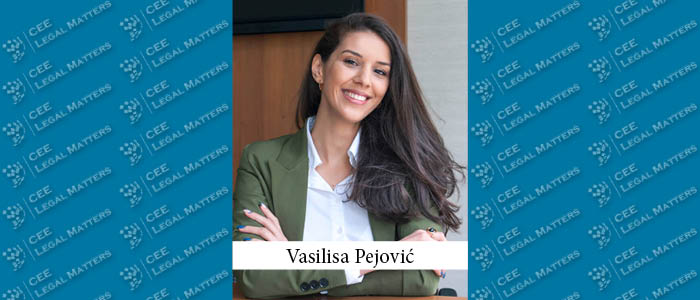As of 1 August 2024, the maximum amount of the fine that can be imposed by the Hungarian Competition Authority (“HCA”) will increase from 13% to 15% during the state of war emergency.
Collision of Foreign Retention of Title with Hungarian Asset Pledge: Important Legal Information for Export-Import Companies
In export-import trade transactions across Europe, sellers commonly protect their assets by retaining the title of ownership until the buyer has paid the full purchase price. Retention of title allows sellers to reclaim the assets in case of non-payment or the buyer’s bankruptcy before full payment. However, in Hungary, such an arrangement can present unexpected challenges for sellers.
A Brief Assessment of Turkiye’s International Direct Investment Strategy for the Period 2024-2028
On July 29, 2024, in the Official Gazette No. 32616, Türkiye’s International Direct Investment (‘‘IDI’’) Strategy for the period 2024-2028 was announced to the public. This strategy aims to move Turkey to a stronger position on the global investment map by setting Turkey’s goals and priorities in the field of international direct investments and targets to create a comprehensive support mechanism to reduce the obstacles faced by investors in Turkey and to provide solutions to their needs.
New European Rules for Artificial Intelligence
This March, MEPs approved new rules for artificial intelligence (AI), the so-called Artificial Intelligence Act. This was presented by the European Commission in April 2021. It is the world's first comprehensive AI legislation. The Act aims to improve the functioning of the internal market by setting a single legal framework for the development, launch and use of AI. The AI Act also seeks to reduce the administrative and financial burden on businesses, especially small and medium-sized enterprises.
Reform of the Lobbying Act - One Step Closer to Montenegro's EU Integration
At its session held on June 6th of this year, the Parliament of Montenegro adopted, as part of a set of seven so-called IBAR laws, a new Lobbying Act regulating the conditions and manner of conducting lobbying activities, rules, and other significant matters related to lobbying.
Ukraine Lifts Import VAT and Customs Duties from Certain Energy-Generating Equipment
In response to the extensive destruction caused by Russia to Ukraine’s critical energy infrastructure, the Ukrainian government continues to implement emergency measures to restore energy-generating capacities and ensure energy stability across the country.
Trademarks in International Trade: 5,000 High-Quality Athletic Sneakers
What do Panama, the Netherlands, Latvia, and Serbia have in common? A shipment of over 5,000 high-quality athletic sneakers travelled through these countries before being halted at customs over authenticity concerns.
Ukraine Announces Further Changes to Competition Legislation
Following the implementation of the first stage of the Competition Law reform, the Antimonopoly Committee of Ukraine (AMC) unveiled a new Draft Law on 24 July 2024, marking the second stage of the reform. This draft aims to further align Ukrainian competition legislation with EU standards and refine certain previous changes.
New Legislation to Fight Against Money Laundering and Terrorist Financing
To support the prevention of money laundering and terrorist financing, on 26 June 2024, the Hungarian National Bank issued two new regulations, incorporating changes in domestic legislation, guidelines of the European Banking Authority and lessons learned from supervisory experience.
The Social Tax on Interest Income Remains with Us
Since 1 July 2023, interest income has been subject to a 13% social contribution tax (‘szocho’) in addition to the 15% personal income tax (‘szja’). Originally this was only for the duration of the emergency caused by the armed conflict in Ukraine. However, a new act published in the Hungarian Official Gazette on 18 June 2024, changed the situation.
Amendment to the Albanian Labour Code
The Parliament of Albania has recently passed amendments to the Albanian Labour Code (“Code“), specifically regarding employee annual paid vacation entitlements.
The EU AI Act Enters into Force Today, August 1, 2024
The EU’s Al Act (Regulation 2024/1689) enters into force today, August 1, 2024. The groundbreaking Act is designed to ensure that AI systems are safe, transparent, and governed by rules that protect fundamental rights. The Act categorizes AI applications into risk-based tiers, with each tier subject to different levels of regulatory scrutiny and compliance requirements.
Czech Republic: New Employers Obligations Regarding Employees Working Under Agreements to Complete a Job
New regulations governing agreements to complete a job (in Czech: dohoda o provedení práce) came into effect in the Czech Republic on 1 July 2024, with additional provisions set to be implemented on 1 January 2025. These amendments significantly modify the original provisions outlined in the Czech Consolidation Package (Act No. 349/2023 Coll.).
2024-2025 Action Plan on Artificial Intelligence Strategy Published
In line with the recent developments across the world, the National Artificial Intelligence Strategy 2024-2025 Action Plan (“Action Plan“) was published, prepared in cooperation with the Presidential Digital Transformation Office of the Republic of Türkiye and the Ministry of Industry and Technology, and in line with the opinions of various public and private actors and nongovernmental organizations (“NGOs“), to advance Türkiye’s framework on artificial intelligence practices and strengthen its global position in terms of artificial intelligence.
New Activity Codes: Administrative Obligations for Hungarian Companies
In July 2024, the Hungarian Central Statistical Office began sending formal notifications via email regarding changes to the statistical codes of various activities. Although the required procedure takes only a few minutes, non-compliant companies may face penalties.
New Rulebook on UBO Registration in Montenegro – Key Compliance Deadline Approaching
The Montenegrin Ministry of Internal Affairs recently implemented a Rulebook on Ultimate Beneficial Owner (“UBO”) Registration, effective from 27 July 2024. It introduces significant changes in how legal entities in Montenegro must manage their UBO information as part of the country’s effort to strengthen its fight against money laundering.
Bankruptcy – Consequences on the Course of the Civil Proceeding
As a result of major market changes, business entities more often suspend their operations and become insolvent, during which arises the question of the collectability of the claims of their creditors and associates, as well as persons who are in other relationships with such insolvent business entities.
Important Changes to the Legislation on Waste Electrical and Electronic Equipment
On 17 May 2024, Law No. 127/2024 for the approval of Government Emergency Ordinance No. 5/2015 on Waste Electrical and Electronic Equipment (Law No. 127/2024) entered into force, after a laborious journey marked by extensive debates and negotiations, thus finalizing a legislative process that began in 2015.


































